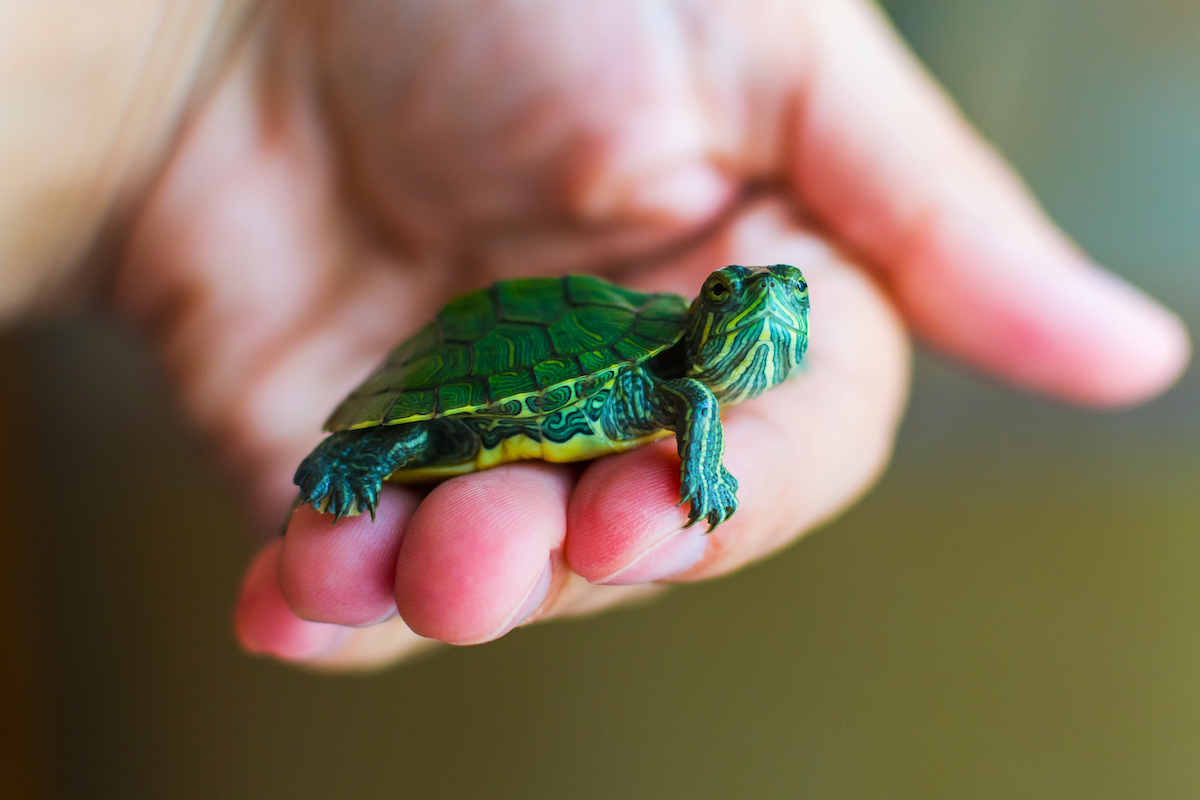The truth of it is that many of us have spent more time at home this past year than we expected to. For some, this meant taking inventory of their life and evaluating what is important and what is not. This has sparked many new healthy habits and improved communication for some people. For others, this shined a spotlight on the fact that having some sort of companion to share your time with can be helpful. If you are like many Americans who are allergic to pet dander, most cuddly pets like dogs and cats are not an option. But that does not mean you have to resort to getting a plant! There are a wide variety of other options for pets that can keep you company. Turtles are a great – and quiet – option!
Understand What Turtles are Like as Pets
Before getting any pet, it is important to understand what you are getting into. Doing research on turtles can help to give a better perspective to potential owners and current owners. Every situation is different and depending on whether or not you have kids, the climate you live in, and your day-to-day habits, pet options can change.
While turtles are more interactive than fish and less interactive than puppies, they are equally a big responsibility. Doing your research before buying a turtle is essential. “There is no such thing as an easy pet”, says Katarina Smith of the Mid-Atlantic Turtle and Tortoise Society.
Buying the Right Turtle
Turtles are sensitive to a lot of factors. If you are purchasing a turtle, you want to be sure it was born in captivity. Small turtles being sold in tourist shops may be cute, but will not likely do well in captivity. Population levels of native turtles can suffer from turtles being sold as souvenirs or cheap pets.
Doing research on the right turtle and the best way to buy or adopt it is important. Street vendors and tourist shops can oftentimes be selling the turtles illegally. It is important to check local laws before buying a turtle.
Are Pet Turtles Dangerous?
Turtles have a reputation for carrying salmonella. Because of this, young children, pregnant women, and elderly people should avoid contact with these pets or be extra careful to wash their hands thoroughly.
With small children, some states even prohibit the sale of these animals below 4 inches in size because they could pose a choking hazard.
If you have small children at home and decide to get a turtle it is important to monitor them while they play. Keep the turtle away from their mouth and clean their hands before and after to ensure your child’s safety.
Picking the Right Turtle
Just like any other living animal, turtles change and grow. Some turtles can get to be the size of a garbage can lid. It is important to do your homework and understand what species, variety, and gender of the turtle you get. This can help with the planning for the kind of tank they are in and the food they need to eat.
For first time owners, experts suggest male painted turtles, U. S. mud and musk turtles, and mal red-eared sliders.
Proper Care is Essential
Most people assume these animals to be some of the lowest maintenance pets available. Contrary to popular belief, turtles require more care than the average person generally assumes. These animals live to be decades old, and while they might not require the same attention as a new puppy, it is important not to neglect them entirely. These pets require an aquarium with space to roam, strict temperature control, clean water, and a varied diet.
It is also essential to understand the proper amount of water in the tank. Some turtles need space to swim, while others may only require a simple water bowl.
Get To Know Your Turtle
Just with any pet, Animal Care Center is here to help with any questions you may have. We pride ourselves on creating a healthy and happy home for both pets and owners alike. Bringing any new pet into the home is a big responsibility. However, the reward of their love and companionship is worth it!






